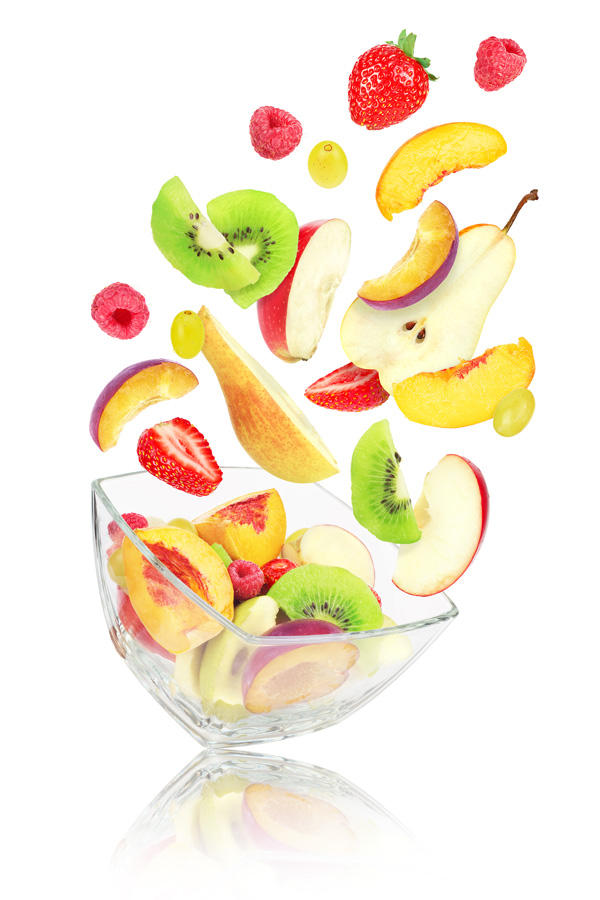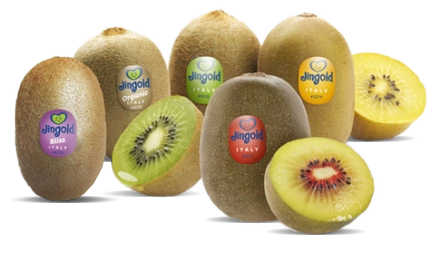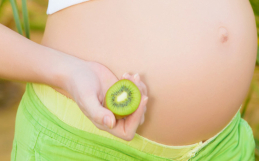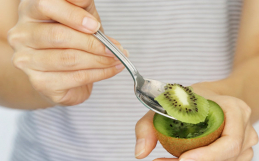Fruit and diabetes
The management of diabetes mellitus, that is the disease characterised by an excess of sugar (glucose) in the blood, depends greatly, in addition to treatment, on lifestyle and on the usual diet. It is therefore important to be careful with sugar or carbohydrates: a rapid rise in glucose levels in the blood favours the progression of diabetes complications, like some illnesses of the eyes, the kidneys, the cardiovascular system and the nervous system.
- One of the foods that contains sugar (fructose) in nature is fruit and the opinions on which fruits can be eaten or not in case of diabetes are really numerous and, at times, also conflicting. What we can state with certainty is that discouraging people who suffer from diabetes from eating fruit is undoubtedly wrong.
- Fruit contains valuable micro-nutrients (vitamins, minerals, anti-oxidants) and it is, additionally, an excellent source of fibre: a balanced diets includes the consumption of two servings of fresh fruit each day. The Mediterranean diet, recognised as a UNESCO heritage of humanity, also includes the consumption of one-two servings of fresh fruit with every main meal.

Nonetheless, diabetics must be careful about the quantity and the type of fruit they eat, because sugars act also in relation to the other nutrients of the fruit, like in the case of kiwi, which are rich in fibres and vitamin C. For this reason, it is a good idea to consider a few factors to keep the glucose level under control.
Which fruit can be eaten with diabetes?
Knowing how much sugar the fruit you plan to eat contains is essential to keeping diabetes under control.
The fruits recommended for diabetics, therefore, those that contain less soluble sugars, are:
| Fruit | Sugar content in one 150 g serving |
|---|---|
| Watermelon | 5,6 g |
| Winter melon | 7,4 g |
| Strawberries | 8 g |
| Peaches | 8,7 g |
| Gold and red kiwi | 8,85 g |
| Grapefruit | 9,3 g |
| Raspberries | 9,8 g |
| Summer melon | 11,1 g |
| Oranges | 11,7 g |
| Blackberries | 12,2 g |
| Green kiwi | 13,5 g |
| Apples | 15 g |
| Blueberries | 15,2 g |
| Williams pears | 15,3 g |
While fruits that are richer in sugar, and that should not be eaten in large quantities, are:
| Fruit | Sugar content in a serving of 150 g |
|---|---|
| Figs | 21,3 g |
| Bananas | 22,2 g |
| Grapes | 23,4 g |
| Pomegranates | 23,9 g |
| Persimmon | 24 g |
| Tangerines | 26,4 g |
*Source: CREA Centro di ricerca Alimenti e Nutrizione food composition tables
Diabetes: 2 recommendations for the proper fruit consumption
- First of all, it is necessary to weigh the amount of fruit eaten daily: an average serving is approximately 150 grams but, in the case of fruits particular rich in sugar (see table in the previous chapter), it is best to limit the serving to 80 grams. Generally, not exceeding 300 grams of fruit per day is recommended.
- Second of all, fruit must always be eaten on a full stomach, after lunch or dinner, to lower the glycaemic index, that is the ability of the sugars in a food to raise the glycaemia in the blood.
Advantages of kiwi in the diet of diabetics
An advantageous fruit for diabetes, and widely researched recently, is precisely the kiwi.
- In particular, ripe kiwi are made up mainly of water and soluble sugars, contained by the cellular walls and by the firmness of the fruit. Approximately 84% of the dry weight (that is dehydrated, without water) of kiwi is made up of soluble sugars available as glucose, fructose and sucrose. The glycaemic index of kiwi, that is the ability of its sugars to raise the glycaemia in the blood is relatively low, thanks to its high water and fibres content and above all because these sugars are “harnessed” in the fibres/plant cells of the fruit. Nonetheless, the total amount of sugars and the relation of these sugars can vary not only in function of ripeness, but also with the variety of the kiwi themselves (e.g. gold and red kiwi contain less sugar than the common green kiwi).
- Studies on humans have demonstrated that the fibres of kiwi have a significant ability to slow down the mixing and the diffusion/absorption of glucose. Eating this fruit can, therefore, provide protection against problems associated to the speed of absorption of sugars, contrasting the rapid increase of the postprandial glycaemic curve (after the meal). For this reason, the glycaemic index of kiwi is considered medium-low: if measured in humans, it is lower than that calculated by just the glycaemic indexes of its sugars components in vitro.
- The dietary fibre of kiwi can have an additional protective role against the atherosclerotic consequences of hyperglycaemia or diabetes, reducing the absorption of lipids (fats) and bile acids. The kiwi, in all its varieties, is therefore a fruit to be recommended completely for the diet of diabetics and for the diet of those who suffer from impaired fasting glucose. Since the potential effects of the benefits of kiwi continue to be widely researched, we can expect further scientific evidence in the future on the contribution of kiwi consumption for the health of people in general, not only for diabetes. Did you know, for example, that kiwi can help combat constipation?
- Lastly, besides fibres, kiwi (especially the gold variety) is rich in organic acids, like citric acid and malic acid, able to reduce the speed of gastric emptying, therefore, eliminating the increase of postprandial glycaemia.
Scientific collaboration: Dott.ssa Raffaella Cancello, Nutritional Researcher, Department of Medical Sciences and Rehabilitation specialised in endocrine-metabolic disorders, Research Laboratory in Nutrition and Obesity, IRCCS-Istituto Auxologico Italiano (Scientific Institute for Research, Hospitalization and Health Care), Milan
Published works: https://pubmed.ncbi.nlm.nih.gov/?term=Raffaella+Cancello
Essential bibliography:
- Wilson R, Willis J, Gearry RB, Hughes A, Lawley B, Skidmore P, Frampton C, Fleming E, Anderson A, Jones L, Tannock GW, Carr AC. SunGold Kiwifruit Supplementation of Individuals with Prediabetes Alters Gut Microbiota and Improves Vitamin C Status, Anthropometric and Clinical Markers. Nutrients. 2018 Jul 12;10(7):895. doi: 10.3390/nu10070895. PMID: 30002355; PMCID: PMC6073280.
- Mishra S, Edwards H, Hedderley D, Podd J, Monro J (2017) Kiwifruit non-sugar components reduce glycaemic response to co-ingested cereal in humans. Nutrients. https://doi.org/10.3390/nu9111195
- Rush E, Drummond LN (2009) The glycaemic index of kiwifruit. N Z Kiwifruit J 192(May/June):29–33
- Monro J, Bentley-Hewitt K, Mishra S. Kiwifruit Exchanges for Increased Nutrient Richness with Little Effect on Carbohydrate Intake, Glycaemic Impact, or Insulin Response. Nutrients. 2018 Nov 8;10(11):1710. doi: 10.3390/nu10111710. PMID: 30413045; PMCID: PMC6265741.
- Monro JA. Kiwifruit, carbohydrate availability, and the glycemic response. Adv Food Nutr Res. 2013;68:257-71. doi: 10.1016/B978-0-12-394294-4.00014-6. PMID: 23394992.







